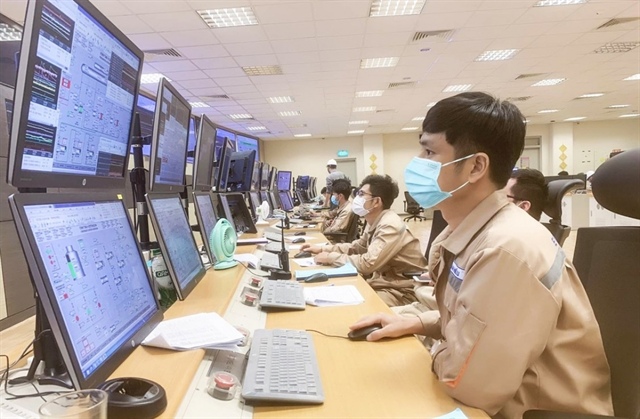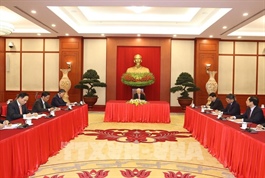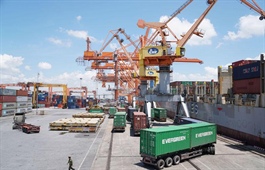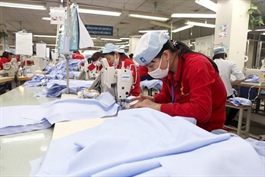PM urges increased competitiveness, efficiency of SOEs
PM urges increased competitiveness, efficiency of SOEs
Resolving institutional bottlenecks and unleashing available resources are considered key for Vietnam to promote the development of state-owned enterprises (SOEs).

SOEs hold key resources and are important economic drivers in Vietnam’s socioeconomic development strategy |
Low competitiveness
Data from the Ministry of Planning and Investment show that SOEs have total assets of VND4,000 trillion, reaching an average of about VND4.1 trillion per firm, 10 times higher than assets of foreign-invested enterprises and 109 times higher than those of domestic private companies. On average, their return on equity ratio (ROE) reaches 10.46 percent, while return on assets ratio (ROA) reaches 4.87 percent.
However, SOEs have not been able to fully realize their potential and their leading role to create economic impetus remains limited, as reflected in the lack of spillover and competitiveness effects from large-scale projects. In addition, SOEs remain weak in scientific and technological application and innovation, while remuneration mechanisms have been unsatisfactory.
Minister of Planning and Investment Nguyen Chi Dung said failure to unleash the economic potential of SOEs will result in their limited contribution to the economy in the next five years.
At a recent online conference with representatives of SOEs, Prime Minister Pham Minh Chinh set out priorities for SOEs to identify the limitations and shortcomings of current policies that hinder business performance, and seek solutions to bring into play their resources in national socioeconomic development.
|
Open mechanisms required
Tao Duc Thang, chairman of the Viettel Military Industry and Telecoms Group (Viettel), said SOEs must accept competition and see it as a driving force for development. They should also strengthen innovation and creativity to ensure sustainable development.
Duong Quang Thanh, board chairman of the state-owned Vietnam Electricity (EVN), said SOEs play dominant roles in several key economic sectors, such as energy and telecommunications. They need to diversify forms of investment and encourage the private sector to participate in power projects in accordance with Politburo Resolution 55, Thanh suggested, adding that there should be a mechanism for assigning SOEs to serve as project investors.
According to other SOE representatives, support policies must be developed and separate management tools must be adopted for large corporations that play an important role in key economic sectors. They also proposed several measures to resolve bottlenecks in mechanisms and policies.
PM Chinh emphasized the importance of addressing weaknesses and obstacles in SOE’s development, while strengthening decentralization, improving self-sufficiency and raising awareness to the importance of these enterprises in the development of the national economy. SOEs must pay more attention to the quality of human resources and the role played by central government agencies in charge of managing the state’s shares, he said.


























